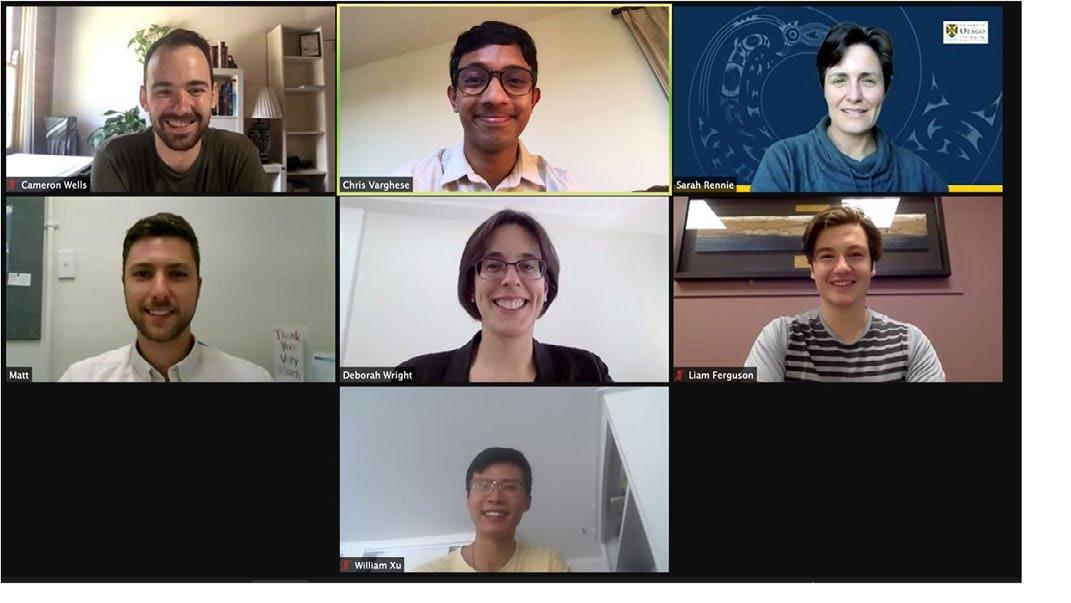14
Embracing diversity feature
It’s a great life out there! Surgeons share their experiences working in rural and regional areas of Australia and New Zealand Mr Sabu Thomas, General Surgery, Kalgoorlie, Western Australia I have always had wonderful and very collegiate general and subspecialty colleagues in the regional areas where I worked. In rural practice you have a close relationship with colleagues, including surgeons, anaesthetists, staff in clinics and theatre. Urban surgeons and specialty boards need to value rural surgery and rural surgeons. Don’t devalue their work – indirectly, or directly. Support rural surgeons by visiting them, and credential them to visit and work in needed subspecialty areas in big tertiary centres once in a while.
Associate Professor Matthias Wichmann, General Surgery, Mount Gambier, South Australia When we came to Australia from Munich we had to work in an ‘area of need’. We chose Mount Gambier because it was halfway between Melbourne and Adelaide, had good schools for our children, and the hospital was closely connected with two universities. Working in a rural environment always keeps you on the tips of your toes. Even after 15 years of working in rural surgery,
Every Australasian surgeon should be exposed to rural surgery for at least six months of their training. I would be surprised if we do not see more young surgeons developing an interest in this fascinating specialty. Life in rural communities is very rewarding and welcoming. My advice would be, try it and keep an open mind about a nonmetropolitan career. It’s a great life out here! Dr Roxanne Wu, Vascular Surgery, Cairns, Queensland Living and working in a regional area has given me a balanced life and a richly rewarding career. I have brought subspecialty skills in Vascular Surgery to a region that did not know they needed a vascular surgeon. When I came to Cairns it became evident there was a huge need for dialysis and its attendant vascular problems; a need for a vascular surgeon to attend to the diabetic foot problems and of course the usual peripheral vascular disease and trauma.
Rural surgeons need to be encouraged to do procedures that can be safely done in regional hospitals, rather than always sending patients to larger hospitals. Sending patients away does not build regional surgical capacity, nor attract a capable workforce to regional areas. If you are a surgeon in a regional area, keep learning new procedures relevant to your practice. Travel nationally or internationally, if possible, and keep using your learning and skills to assist in different parts of the world. Think of surgery in terms of a vocation and calling.
you need to come up with new ideas or find a friend to talk to about how best to approach a certain condition. In Mount Gambier I have always been lucky to have colleagues to work with and to rely on. This has made my life as a rural surgeon much easier and much less stressful. Rural surgery is probably the only specialty where a surgeon can do an endoscopy and a hernia repair followed by a gallbladder and a bowel resection – all on patients they have met before surgery, will meet again after surgery and will most likely bump into at a friend’s place not long after that. We get to care for our cancer patients throughout their cancer journey and I would not want it any other way.
It takes me 15 minutes to drive to the hospital, except for the days I do a rural outreach clinic which is usually an hour’s drive away. Running a practice in a regional centre is easy. I have never had to look for work, it comes to find me. Most of the general practitioners know you personally and it is easy to get to know them. There is absolutely no shortage of work, rent is reasonable, and getting good

























